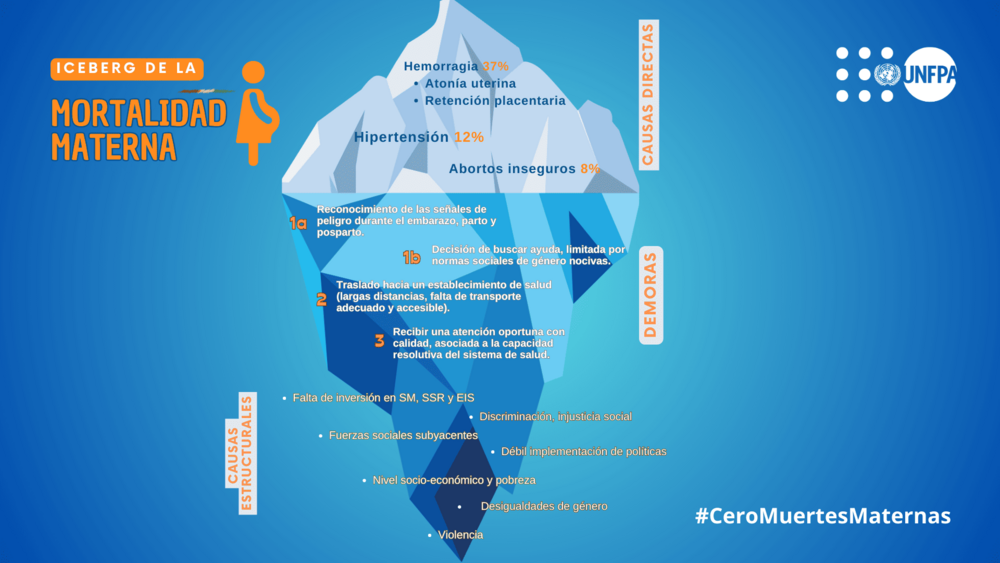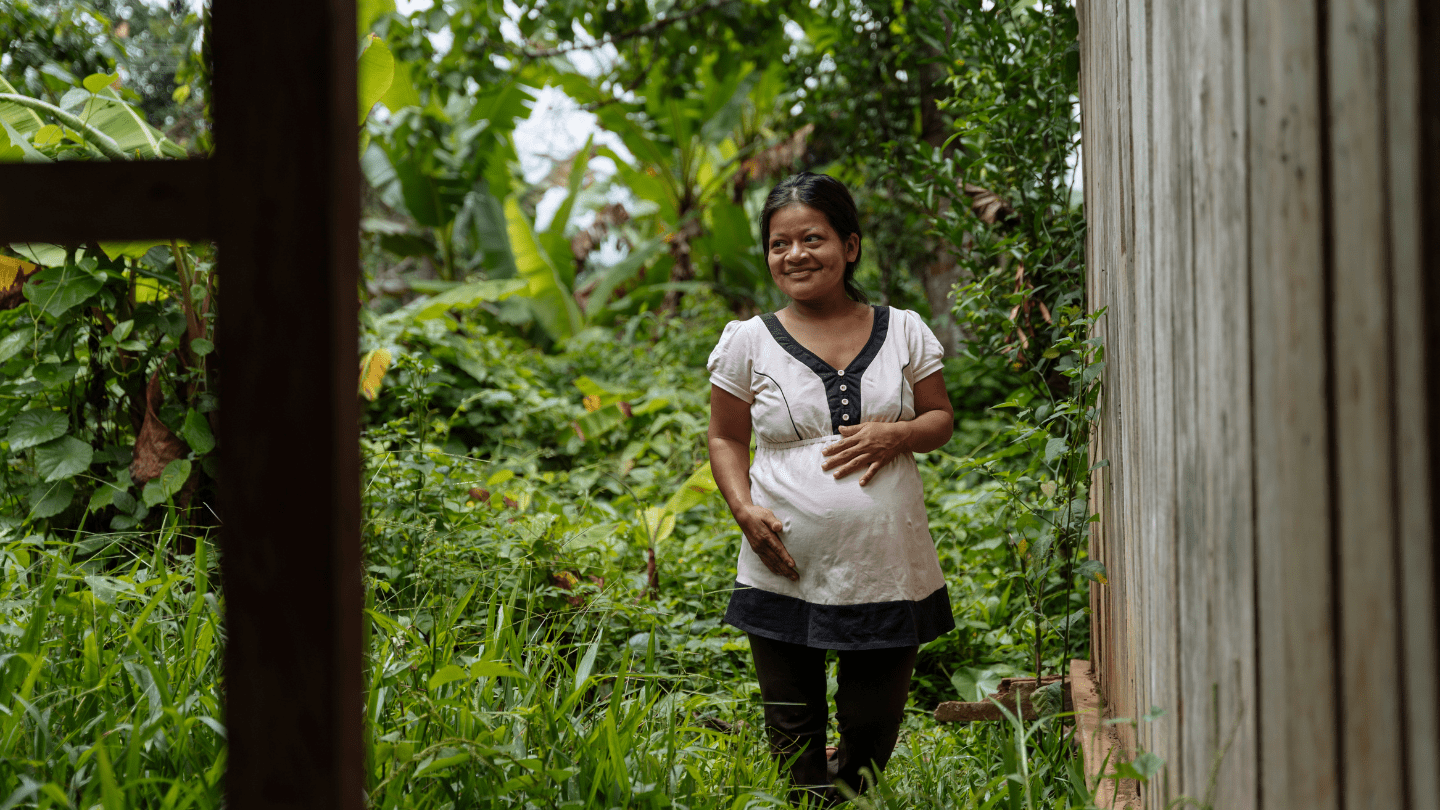PANAMA CITY, Panama, May 15, 2025 - The ministries of health from Colombia, Ecuador, Venezuela, Peru, and Bolivia have taken a significant step toward protecting women's lives by approving the Andean Policy for the Prevention and Reduction of Maternal Death (Resolution XXXVIII/9 from the Extraordinary Meeting of Ministers of Health of the Andean Area - REMSAA, for its acronym in Spanish). The policy addresses the urgent need to accelerate the reduction of maternal mortality in a region where statistics demand immediate and coordinated action.
This policy, developed by the Andean Health Organization – Hipólito Unanue Agreement (ORAS-CONHU for its acronym in Spanish), with the support of the United Nations Population Fund (UNFPA), was formalized during the XXXVIII Extraordinary Meeting of Ministers of Health of the Andean Area, held virtually on May 15, 2025.
"We've known for more than three decades what needs to be done to prevent maternal mortality. It requires a strong commitment to the right to health for women, especially those in more vulnerable conditions, which are the ones who die from causes related to pregnancy, childbirth, and postpartum," said Dr. Alejandra Corao, UNFPA Regional Advisor for Sexual and Reproductive Health for Latin America and the Caribbean.
Recent data reveals the pressing situation in the Andean region, where the maternal mortality ratio reaches 91 deaths per 100,000 live births, exceeding the regional average for Latin America and the Caribbean (77 per 100,000).
While the Andean region achieved a 26% decrease in this indicator between 2000 and 2023, the 5% increase since 2015 is deeply concerning and it underscores the need for effective actions.
Maternal mortality is not only a public health problem but also a matter of inequality. In Latin America and the Caribbean, the risk of maternal death is three times higher among indigenous women, and there is evidence of a similarly elevated risk for Afro-descendant women, a reality that the new policy seeks to address as a priority in the Andean context.
"Behind maternal mortality lies the horrible face of inequality. In our region, maternal mortality has the face of indigenous women, Afro-descendant women, with limited income and low educational levels. Behind the numbers lie stories of discrimination and exclusion. This reality is a violation of human rights and must be transformed urgently," explained Dr. Corao.

The new Andean Policy for the Prevention and Reduction of Maternal Death is presented as a strategic roadmap to achieve the goal of zero preventable maternal deaths. Its lines of action range from updating regulations and strengthening the capacities of health personnel to ensuring essential equipment and supplies. A key focus is strengthening coordination between health systems and community organizations, recognizing the vital role of midwives and health workers in bringing services closer to all women, while respecting their cultural diversity.
Data and cost-effective interventions are available for strong action involving all levels of government and society in general. UNFPA contributes by promoting these interventions, training health personnel, and supporting the implementation of effective public policies.
Ensuring that every woman in the Andean region has access to high-quality medical care throughout her reproductive life is an investment with benefits that transcend individual health. Evidence indicates that for every dollar invested in eradicating unmet needs for family planning and maternal deaths, USD 8.4 in economic benefits are generated.
The effective implementation of this policy will require a coordinated and sustained effort among all levels of government and civil society. UNFPA reaffirms its commitment to continue supporting the countries of the Andean region in this crucial path toward reducing maternal mortality.
━━━━━━━━━━━━━━━━━━━━━━━━━━
Press Contact
Norha Restrepo, nrestrepo@unfpa.org +507 64654591 (Panama)
About Us
UNFPA is the United Nations agency for sexual and reproductive health. Our mission is to achieve a world where every pregnancy is wanted, every childbirth is safe, and every young person's potential is fulfilled.
We promote gender equality and empower women, girls, and young people to take control of their bodies and their future. We work with partners in over 150 countries to provide access to a wide range of sexual and reproductive health services. Our goal by 2030 is to end the unmet need for family planning, preventable maternal mortality, gender-based violence, and harmful practices such as child marriage and female genital mutilation.


